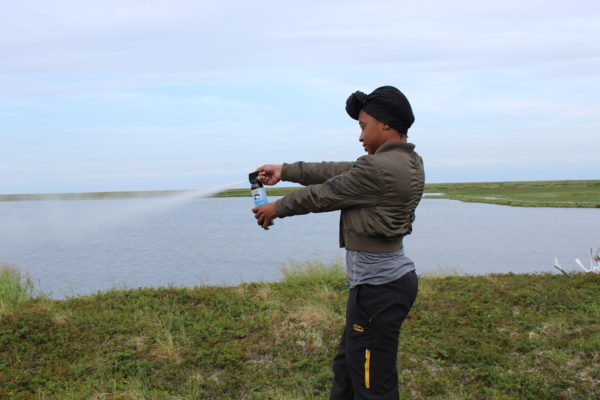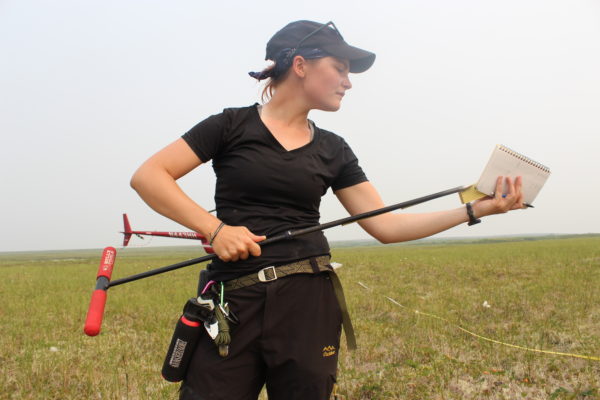Today I went out with Ludda to a hill slope running down to a stream we call “Y4.” She was taking additional measurements to add to the data she has already collected for her project, and I was taking advantage of the photo-friendly light filtered through overcast skies. Between stints of tromping through the undergrowth trailing one end of a 30 meter tape measure to help Ludda measure the slope of her hill, I was able to just sit down and marvel at the larch forest, the mountains in the distance and the tiny gurgling stream. Despite the constant cloud of mosquitoes, both Ludda and I wanted to extend our time out in the wilderness as long as possible, so we stopped to pick berries along the way back to the barge. As we walked, we talked about the unique and – at least on my part – somewhat unexpected beauty of the Arctic.
[simpleviewer id=”22″ width=”536″ height=”536″]
But even during a fairly relaxed excursion like this one, watching students and PIs work constantly reminds me that while our surroundings are beautiful and we can take great joy in exploring them, this is first and foremost a scientific venture. While much of the work we do here, outside of our sometimes eventful trips into the field, would likely seem mundane to the outside observer (measuring tree rings, sifting soil, taking water sample after water sample…) every data point the students and PIs generate brings us closer to a better understanding of Arctic ecosystems, both in general and specific to the comparatively understudied Siberian Arctic. And as every member of our group will point out – and in fact many of them have – understanding the Arctic is increasingly important in our warming world because changes in the Arctic have the potential for global implications.
I’m absolutely fascinated by the evolution of everyone’s projects. As the end of our Siberian journey looms ever closer (I can’t believe we have less than a week left in Cherisky!) spreadsheets and graphs appear on the walls of the barge for everyone to examine. I’ve heard some stories of interesting results already, and though many of the details of the chemistry and biology involved are beyond my knowledge and experience, I feel like I am learning a lot about how Arctic systems function. Which is really the whole point of the Polaris Project. And the more I learn, the more I want to know more. I’m hoping this feeling is contagious, because I want my video/photography work to have a similar effect on everyone who sees it.
One of the overarching goals of Polaris is to train/inspire the next generation of Arctic researchers. And as I look out the window of the barge at the sun sparkling off the surface of the Panteleikha River, I’ve got to say, I think I’m hooked.



